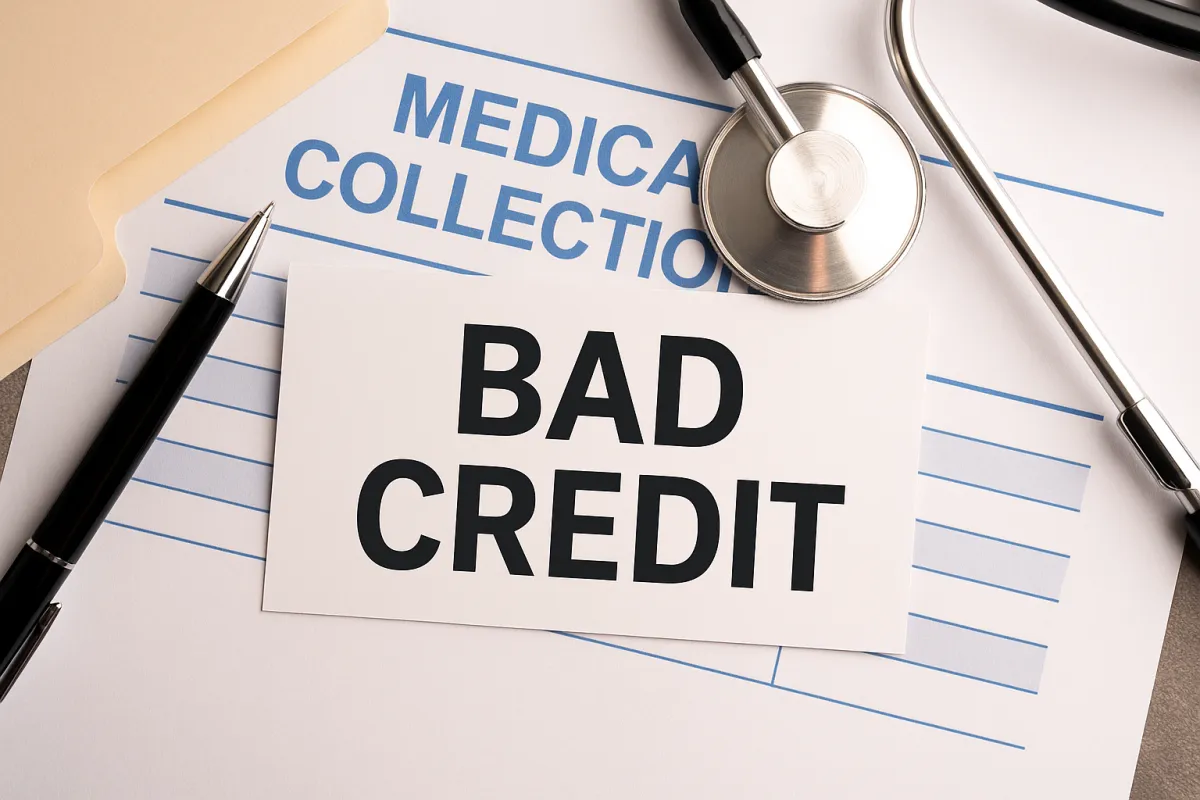
Medical Collections Accounts
Medical Collections Accounts: What You Need to Know and How They Affect Your Credit
At some point, many people face unexpected medical expenses they can’t pay right away. This can result in medical bills that end up in collections. It’s a delicate and stressful situation, but understanding how this process works and what options you have can help you manage it better and protect your credit history.
What is a medical collection account?
When you have a medical debt that you don’t pay within the agreed timeframe with the hospital, clinic, or healthcare provider, it’s common for the account to be sent to a collection agency. At that point, the debt becomes a medical collection account.
Collection agencies buy or manage these debts and start contacting you to recover the money. From a credit report perspective, a collection account indicates you didn’t meet the original payment terms, which can negatively impact your credit score.
How do medical collections affect your credit?
Until recently, medical collections could significantly lower your credit score, just like any other collection debt. However, in recent years, the main credit bureaus have implemented some important changes:
✅ Medical collections that were paid after being sent to collections no longer appear on credit reports.
✅ There is a one-year grace period before new medical collections appear on your report, giving you time to resolve them with your insurance or arrange a payment plan.
✅ Medical debts under $500 are generally no longer reported to the credit bureaus.
Even so, it’s important to handle these debts carefully to avoid long-term damage to your credit.
What to do if you have a medical collection account?
If you’re facing a medical collection account, here are some steps to help you manage the situation:
1. Verify that the debt is accurate
Before paying, make sure the debt is really yours and the amount is correct. Request a detailed statement and check if your insurance covered what it was supposed to.
2. Talk to the provider
Many times, hospitals and clinics are willing to negotiate a direct payment plan with you, even after the account has been sent to collections.
3. Know your rights
You have rights as a consumer under the Fair Debt Collection Practices Act (FDCPA). Agencies cannot harass you, call you at inappropriate times, or threaten you illegally.
4. Don’t ignore the situation
Ignoring collection accounts can lead to lawsuits or even wage garnishments. It’s always better to communicate and look for a solution.
5. Consider professional help
If the situation is complicated or you don’t know where to start, you can count on credit restoration professionals, like us at Arreglocredito.com, to guide you and help you resolve the accounts in the best way possible.
Tips to avoid medical collections
Always review your medical bills and compare them with what your insurance covers.
If you can’t pay the full amount, request a payment plan from the beginning.
Maintain good communication with your healthcare providers and your insurance company.
In summary
Medical collection accounts can be an obstacle on your path to good credit, but they don’t have to define your financial future. With knowledge, quick action, and professional help if needed, you can overcome them and keep your credit history healthy.
At Arreglocredito.com, we’re here to help you understand your situation, audit your credit report, and guide you toward the best way to resolve your medical collection accounts.
📞 Contact us for a free consultation and start regaining your financial peace of mind today.
